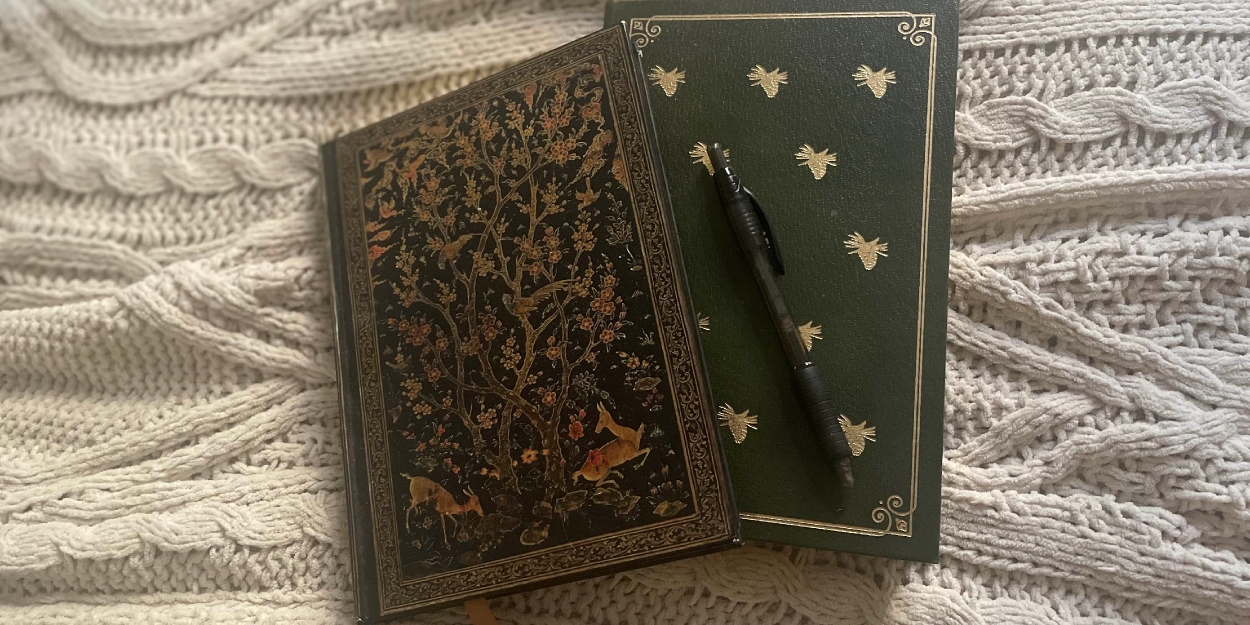Student Blog: Writers Block
As a writer, I often struggle with procrastination simply because it is difficult to get started, much less get to a finished product.

Writing is one of my favorite ways to spend my time, but I would be lying if I said it always comes easily to me. I honestly don’t think it’s easy for anyone. Every writer I know has had the experience where they sit in front of their notebook or computer just staring blankly, not knowing what to say or how to start.
The worst part of writing is getting started. When there are no words on the page, starting any piece feels like trying to scale a mountain. As a writer, I often struggle with procrastination simply because it is difficult to get started, much less get to a finished product. The fact is, the idea of writing is heavily romanticized, but no one talks about the reality of the creative process. Even in my own head, I imagine that I will magically wake up one day and suddenly something will change. I picture the perfect utopia where I can sit down at a coffee shop and have incredible bursts of creativity. I think that if I could just have more time and ideal conditions, I would get more done. But this is rarely the case. The truth is, there will never be a perfect time to write.
But there are habits you can get into as a writer to make it quicker to not just get a finished project, but also to write more on a day-to-day basis. After all, having a process that works with your schedule helps you finish pieces more consistently. It also makes you a better writer. The first tip I always recommend to people struggling with a creative block is just getting words down on the paper. If you’re writing an article or a paper, just start free-writing based on your prompt or thesis. Start with bullet points of topics you want to discuss in the piece and start writing about those ideas. Even if what you come up with is gibberish, that can loosen you up and help you start getting your thoughts out without judgment getting in the way. If you’re songwriting or writing a fictional piece, you can start to construct the narrative you want to follow and free-write based on that. I find that by doing this, you actually end up with some very eloquent bits and pieces, as you’re not worried about if it’s good or not. From there, you can revise and move phrases around. If you start out too hesitant to type anything, you won’t have anything to work with.
The next habit I stand by is journaling when you have any spare time. Even if you only write a page a day, or half a page a day, this can get you in the habit of writing consistently. It also sharpens your skill of conveying what you want to say in a written piece. I personally want to devote more time to this, as it can be really helpful as a writer. It also helps you understand how you feel in your day-to-day life. As a student writer who talks a lot about the life of an actor in New York City, I think it’s important to be diligent about journaling after I go to an ECC or a class, simply because it’ll make my pieces more honest.
Once you understand how to utilize these tools to your advantage, you also need to practice discipline. If you set a goal to journal every morning, for example, be kind to yourself if you aren’t able to meet that all the time. However, you need to show yourself some tough love if you’re only journaling 2 out of the 7 days of the week. If you start your process with bullet points, make sure you do some free-writing on those topics before taking a break. Your goals do not have to be extreme, but I do think it is vital to have something to work toward as a writer so you don’t get overwhelmed and quit before you get started.
These habits can change your life as a writer, and honestly, they aren’t big changes to make. Writing will never be the effortless, romanticized process you have in your head. The process will still be challenging, but incorporating these tools will prevent creative blocks and keep you writing without judgment. Once you set these goals for yourself, it only gets easier to keep going.
Videos


